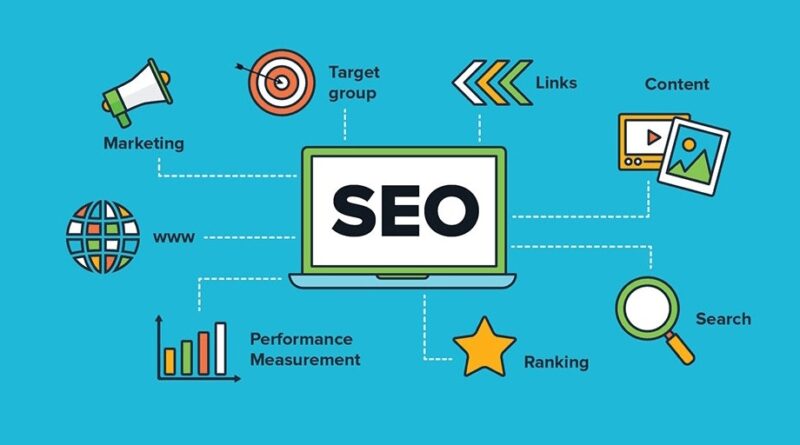SEO Best Practices: 5 Tips to Improve Your Google Rankings
Search engine optimization (SEO) is a crucial aspect of digital marketing. It involves optimizing your website’s content and structure to improve your search engine rankings and drive more traffic to your site. With the right SEO strategy in place, you can increase your online visibility, attract more targeted traffic, and ultimately, grow your business. In this article, we’ll discuss the basics of SEO and how it can benefit your business.
What is SEO?
SEO is the process of optimizing your website’s content and structure to improve its visibility in search engine results pages (SERPs). When a user enters a search query into a search engine, such as Google or Bing, the search engine uses complex algorithms to determine which websites are most relevant and authoritative for that search query. By optimizing your website’s content and structure, you can improve your chances of appearing in the top search results for relevant search queries.
There are two main types of SEO: on-page optimization and off-page optimization. On-page optimization involves optimizing the various elements on your website, such as page titles, meta descriptions, header tags, and body copy, to improve your search engine rankings. Off-page optimization involves building high-quality backlinks from other websites to improve your website’s authority and credibility in the eyes of search engines.
Why is SEO important?
SEO is important for several reasons. First, it can help you attract more targeted traffic to your website. When your website appears at the top of the search results for relevant search queries, users are more likely to click through to your site. This can lead to more qualified leads, conversions, and ultimately, revenue for your business.
Second, SEO can help you establish your website as an authority in your industry. By creating high-quality, informative content that meets the needs of your target audience, you can establish your website as a valuable resource and earn the trust of your visitors.
Finally, SEO can provide long-term benefits for your business. Unlike paid advertising, which stops generating traffic as soon as you stop paying for it, SEO can continue to generate traffic and leads for your business long after you’ve optimized your website.
How does SEO work?
SEO works by optimizing your website’s content and structure to improve its relevance, authority, and credibility in the eyes of search engines. To improve your website’s relevance, you need to identify the keywords and phrases that people use to search for products, services, or information related to your business. By incorporating these keywords into your website’s content, you can improve your chances of appearing in the top search results for those keywords.
To improve your website’s authority and credibility, you need to build high-quality backlinks from other websites to your site. When other websites link to your content, it signals to search engines that your content is valuable and authoritative. This can help improve your search engine rankings and drive more traffic to your website.
SEO Best Practices
To get the most out of your SEO efforts, it’s essential to follow best practices and avoid common pitfalls. Here are some best practices to keep in mind when optimizing your website for search engines:
Conduct Keyword Research
Keyword research is the foundation of any successful SEO strategy. It involves identifying the keywords and phrases that people use to search for products, services, or information related to your business. By targeting these keywords, you can optimize your website’s content and improve your chances of appearing in the top search engine results pages for those keywords.
To conduct keyword research, start by brainstorming a list of keywords related to your business. Use tools like Google Keyword Planner, Ahrefs, or SEMrush to research the search volume and competition for each keyword. Look for long-tail keywords, which are more specific phrases that have lower search volume but can be easier to rank for.
Once you’ve identified your target keywords, incorporate them into your website’s content. However, be careful not to overuse keywords, as this can lead to keyword stuffing, which can negatively impact your search engine rankings.
Optimize Your Website’s Structure
The structure of your website can have a significant impact on your search engine rankings. To ensure that your website is optimized for search engines, make sure that it has a clear and logical structure. Use header tags (H1, H2, H3, etc.) to organize your content and make it easier for search engines to understand the structure of your website.
You should also make sure that your website’s URLs are clean and descriptive. Avoid using long, complicated URLs with lots of parameters and numbers, as these can be difficult for search engines to understand.
Optimize Your Website’s Content
Your website’s content is one of the most important factors in determining your search engine rankings. To optimize your website’s content, make sure that it is high-quality, informative, and relevant to your target audience.
Use your target keywords strategically throughout your content, but avoid overusing them. Your content should be well-written and engaging, and should provide value to your target audience. Use images, videos, and other multimedia to make your content more engaging and shareable.
Build High-Quality Backlinks
Backlinks are links from other websites to your website. They are one of the most important factors in determining your website’s authority and credibility in the eyes of search engines. To build high-quality backlinks, focus on creating high-quality content that other websites will want to link to.
You can also reach out to other websites in your industry and ask them to link to your content. However, make sure that the websites you are linking to are high-quality and relevant to your industry. Avoid buying backlinks or participating in link schemes, as these can lead to penalties from search engines.
Monitor Your Website’s Analytics
Monitoring your website’s analytics is essential to understanding how your SEO efforts are performing. Use tools like Google Analytics to track your website’s traffic, engagement, and conversion rates. Monitor your website’s rankings for your target keywords and adjust your SEO strategy accordingly.
By following these best practices, you can improve your website’s visibility in search engine results pages and drive more targeted traffic to your website. However, keep in mind that SEO is a long-term process, and it can take time to see results. Be patient and consistent in your SEO efforts, and you’ll eventually see the benefits.



